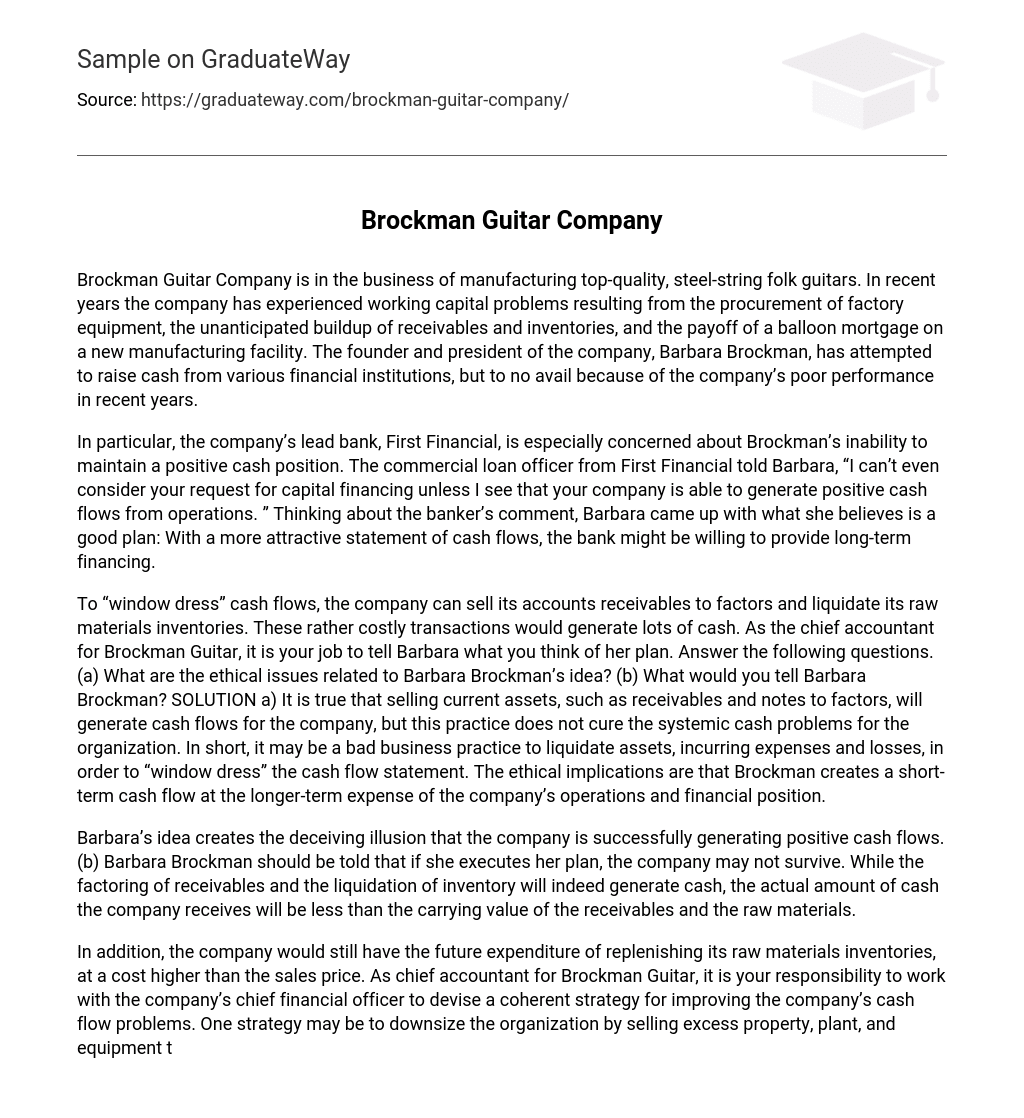Brockman Guitar Company is in the business of manufacturing top-quality, steel-string folk guitars. In recent years the company has experienced working capital problems resulting from the procurement of factory equipment, the unanticipated buildup of receivables and inventories, and the payoff of a balloon mortgage on a new manufacturing facility. The founder and president of the company, Barbara Brockman, has attempted to raise cash from various financial institutions, but to no avail because of the company’s poor performance in recent years.
In particular, the company’s lead bank, First Financial, is especially concerned about Brockman’s inability to maintain a positive cash position. The commercial loan officer from First Financial told Barbara, “I can’t even consider your request for capital financing unless I see that your company is able to generate positive cash flows from operations. ” Thinking about the banker’s comment, Barbara came up with what she believes is a good plan: With a more attractive statement of cash flows, the bank might be willing to provide long-term financing.
To “window dress” cash flows, the company can sell its accounts receivables to factors and liquidate its raw materials inventories. These rather costly transactions would generate lots of cash. As the chief accountant for Brockman Guitar, it is your job to tell Barbara what you think of her plan.
What are the ethical issues related to Barbara Brockman’s idea?
It is true that selling current assets, such as receivables and notes to factors, will generate cash flows for the company, but this practice does not cure the systemic cash problems for the organization. In short, it may be a bad business practice to liquidate assets, incurring expenses and losses, in order to “window dress” the cash flow statement. The ethical implications are that Brockman creates a short-term cash flow at the longer-term expense of the company’s operations and financial position. Barbara’s idea creates the deceiving illusion that the company is successfully generating positive cash flows.
What would you tell Barbara Brockman?
Barbara Brockman should be told that if she executes her plan, the company may not survive. While the factoring of receivables and the liquidation of inventory will indeed generate cash, the actual amount of cash the company receives will be less than the carrying value of the receivables and the raw materials.
In addition, the company would still have the future expenditure of replenishing its raw materials inventories, at a cost higher than the sales price. As chief accountant for Brockman Guitar, it is your responsibility to work with the company’s chief financial officer to devise a coherent strategy for improving the company’s cash flow problems. One strategy may be to downsize the organization by selling excess property, plant, and equipment to repay long-term debt. In addition, Brockman Guitar may be a good candidate for a quasi-reorganization discussed on KWW website.





